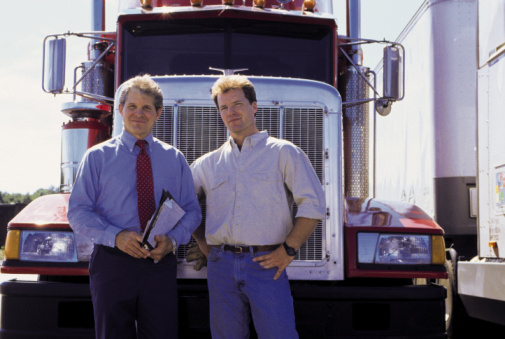How to Pass the CDL Permit Test

Before getting a Commercial Driving License or CDL, you will be required to obtain a CDL learner’s permit which allows you to practice driving a commercial vehicle. You will need to pass a knowledge test which will have vehicle and state specific requirements. Knowing the topics to study will make the process of obtaining a permit a relatively straight forward one.
Instructions
-
1
There will be nine different variations of the CDL permit test. These will include General Knowledge test, Passenger Transport Test, School Bus Test, Air Brakes Test, the Combination Vehicle Test, the Hazardous Materials Test, the Tanker Test and the Double/ Triple Test. Some Test may be applied to all applicants wishing to break into the trucking industry, while others are more specific in relation to type of commercial vehicle they want to drive.
A total of 100 questions will be on the Test, out of which you need to answer at least 80 percent correctly. If you fail, you will be allowed to take the test two more times. If you do not succeed in the third attempt, then you will have to wait 30 days before another retake. In contrast, if you pass the exam, then you will receive a permit, which will be valid for a year. You will then need to clear the skills Test in order to get the CDL. In case the validation expires, you may be required to give the Knowledge Test again. -
2
In order to get the permit, you will need to study from the CDL guidebook, provided by the Department of Motor Vehicles. The knowledge test will be analysing information such as vehicle control, managing space, emergency driving, hazardous rules, gear shifting and other state specific regulations. The pattern will further vary depending on the version of the knowledge test as most commercial vehicles will have air brakes as oppose to the customary anti-lock brakes. Hence, you will need to prepare for questions regarding air brake components, downhill braking and how to inspect air brakes during a failure. In addition to that, for combination vehicles, participants should have knowledge about coupling, uncoupling and other safety related inspection measures. The list will go on when studying for other commercial vehicles such as school buses, tankers etc.







